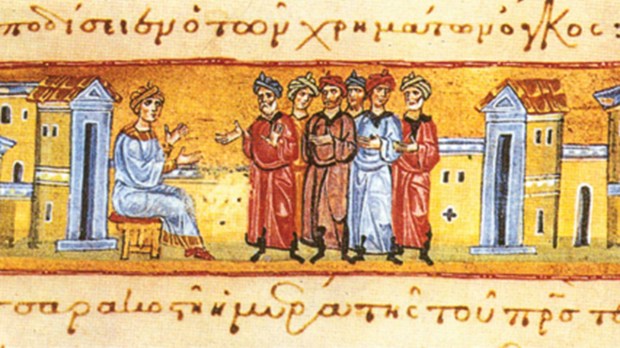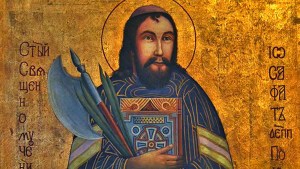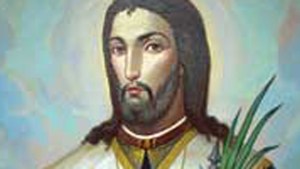Ukraine in the 16th century was extremely volatile, with Christians aligning themselves on opposing sides. One group of Christians wanted to remain separated from Rome, while the other wanted to be fully united to the pope.
St. Josaphat initially grew up on the side of Christians who wanted to stay cut-off from Rome, but eventually was attracted to the truth and beauty of the Catholic Church.
Pope Pius XI explains this initial attraction in his encyclical, Ecclesiam Dei.
From his earliest years he lived a saintly life. Although he was much impressed by the splendors of the Slavic liturgy, he always sought therein first and foremost the truth and glory of God. Because of this, and not because he was impressed by arguments, even as a child he turned towards communion with the Ecumenical, that is, the Catholic Church. Of this Church he always considered himself a member because of the valid baptism which he had received. What is more, he felt himself called by a special Providence to re-establish everywhere the holy unity of the Church.
He took this divine mission seriously, and after being ordained a priest, strove to “capture” souls for the Church. St. Josaphat did this with gentleness and compassion, leading by his example of life
Concerned mainly with seeing his own people reunited to the See of Peter, he sought out every available argument which would foster and maintain Church unity. His best arguments were drawn from liturgical books, sanctioned by the Fathers of the Church, which were in common use among Eastern Christians, including the dissidents. Thus thoroughly prepared, he set out to restore the unity of the Church. A forceful man of fine sensibilities, he met with such success that his opponents dubbed him “the thief of souls.”
St. Josaphat cared for everyone, practicing what he preached, doing all that he could for both the wealthy and the poor.
Marvelous in truth was the number of souls which he led back to the unity of the Fold of Jesus Christ, made up of all classes, peasants, merchants, nobles, prefects, and governors of provinces-a fact which is narrated by Sokolinski of Polotsk, by Tyszhkievicz of Novogrodek, and by Mieleczko of Smolensk. After he was appointed bishop of Polotsk he extended greatly the field of his apostolate, an apostolate which could not but bring about extraordinary results due to the example which he gave of a life of inviolate chastity, poverty, and frugality joined with such openhandedness toward the poor that he even went to the length of pawning his own omophorion [the vestment of an Eastern bishop] in order to care for their needs.
St. Josaphat continues to be an inspiration to us all and an example of how to achieve unity within the Church. It must be done so through dialogue, but most of all, through a holiness of life.



